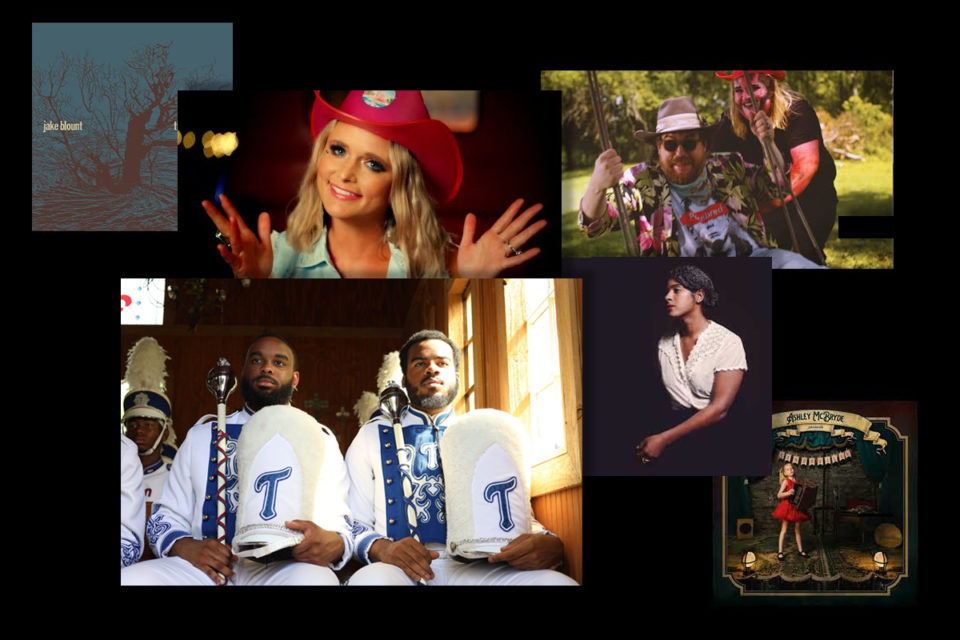Year in and year out, musical history occupies a prominent place in Nashville, so central is it to how the Music City brand is marketed to the outside world. When a towering legend passes, as Loretta Lynn did this year, we expect reverent, public tributes from other country stars, like the medley that opened the most recent CMA Awards show. But as a close observer of the city’s multiple music scenes and industry sectors, I can attest that the shaping and spotlighting of musical legacy wasn’t limited to well-established forms in 2022.
Expanding the limits of legacy
Naomi Judds’ death, just a day before the Judds’ induction into the Country Music Hall of Fame, called for careful improvising. I witnessed the ceremony, and felt how its usual tone of familial dignity shifted a bit to allow for the expression of fresh grief. With the Judds’ final tour already scheduled, Naomi’s daughter and singing partner Wynonna stepped into a new role: performer and custodian of memory, singing each night alongside guest vocalists who count themselves among the duo’s many spiritual children.
John Prine was the subject of lavish tributes when he died in 2020. This year, though, the tending of his memory became an ongoing project, a week-long suite of events, ranging from multi-artist Ryman shows to a soiree at a fast-food joint that translated the warm empathy and folksy quirks he was known for into charitable fundraising.
But to only note the celebrations of those who’ve passed would be to overlook the important ways that living traditions were honored in 2022. A remarkable album from Tennessee Sate’s Aristocrat of Bands united the lineages of HBCU marching bands and gospel music, the contributions of student musicians and gospel luminaries, in the process, helping provide for the future of the historic AOB program. Embedding in the band room was some of the most exhilarating field reporting I did this year.
And from one of the most casually poetic voices in Nashville’s hip-hop scene, Ron Obasi, part of the Third Eye collective, came a song naming local heroes and predecessors from the vantage point of a Black Nashville native. He likened his ambitious hustle to that of entrepreneurial artist and community educator Quanie Cash and baseball powerhouse Mookie Betts, who both came up here before him.
Dance, dance (pop) revolution
There are times when dance music goes partially underground, but it never truly goes away. In 2022, the sound and energy of dance music was reabsorbed into pop, and often in ways that nodded to club culture as a source of inspiration. Beyoncé pulled it off on the grandest scale, with a sleekly sequenced exploration of the pleasure and power of house music, invoking the art form’s Black and queer pioneers in the process, Grace Jones included. Drake went there, too. And so did the band Seratones.
On an album released through New West, a roots-centric, Nashville-based indie label, they treated the synthetic textures of disco as an emotionally rich tradition to play with, at moments, echoing the ecstatic sounds of former Nashvillian Donna Summer.
In an interview nearly a decade ago, Miranda Lambert told me that she had little interest in dance remixes of her songs, despite how many of her peers dabbled in the practice. But when I sat down with her again this year, she explained that she’d changed her mind and commissioned a tropical house remix of a single with feedback from her brother, who’s gay, in hopes of giving her queer fans something for the dance floor.
In the old-time string band scene, Jake Blount even used acoustic elements to approximate four-on-the-floor disco grooves and dramatic strings.
Albums that contain multitudes
Jake Blount did his experimenting on an especially high-concept concept album that unfurled an Afrofuturistic storyline. Through radically reimagined a capella field recordings, spoken liturgies, rapped verses and liner notes, all of which he dissected for me, he depicted survivors of an environmental apocalypse finding new meaning in their ancestors’ songs.
The idea of an album as a collection of music meant to be heard all at once can seem almost quaint now, its importance eroded by the ways that TikTok and prime streaming playlist placements can rocket seemingly random songs to viral popularity. So I think it’s worth noting the resurgence of concept albums and cohesive song cycles this year, particularly in roots and country realms.
That not only applies to Blount’s work, but also Leyla McCalla’s. She dug into the archives of Haiti’s first independent radio station and shaped a rhythmically vivid, political and personal story of the relationship between Haiti and the US around bits of that audio.
Tyler Childers took what can be an austere musical form—country gospel—and recorded a set of those songs three different ways. One version features a lean, lusty live band and at the other extreme, the performances were taken apart, reassembled and looped to surreal effect.
Ingrid Andress made a country-pop singer-songwriter album that subtly probed the flexibility of country’s sonic and moral values, a searching approach that I asked her about when I visited her home for an interview, while on a rollicking, rootsy song cycle, Adeem the Artist did their scrappy, immensely clever part to counter troubling narratives of race, gender and class they’ve picked up on in some modern country songs.
But no artist committed themselves to a concept more thoroughly, or spiritedly, than Ashley McBryde. She made up a small, working-class town with her songwriting buddies, then enlisted them to play parts in the cast of salty characters she imagined living there. She was so intent on conveying the personality of each protagonist that she only sang lead on a handful of songs herself.

